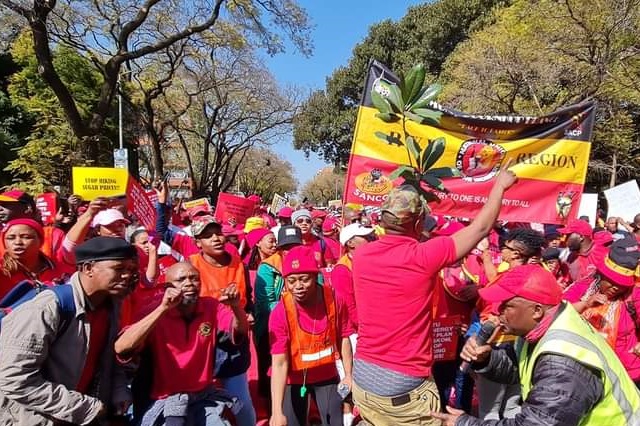Cape Town — The National Education, Health and Allied Workers Union (Nehawu)’s strike is set to continue despite a court order interdicting essential services workers from participating in the protest.
The Labour Appeal Court interdicted Nehawu’s strike in essential service sectors on Monday.
The order was “applicable with immediate effect”.
The ruling came after the strike disrupted operations at some health facilities across the country for the past week.
JUST IN: The Labour Appeals Court has interdicted Nehawu from continuing with their strike pic.twitter.com/sVB5aigaYq
— Jacaranda News (@JacaNews) March 13, 2023
However, Nehawu president Mike Shingange said that the strike will continue.
“The strike in its totality has not been interdicted. It is a component of the essential service that has been interdicted. The strike will continue and it is protected. What the judge has done today was to interdict the essential component of it and we intend to comply with that whilst we explore our options,” SABC quoted Shingange as saying.
Nehawu members in Cape Town intend to continue with their wage strike despite a court interdict. They plan to picket outside the provincial department of labour, home affairs, education and environmental affairs. @Nasiphi_Same reports.
Watch: https://t.co/wfUNB5x3yl pic.twitter.com/brzZsyzDGs
— Newzroom Afrika (@Newzroom405) March 14, 2023
Nehawu said that although essential services workers had now been ordered by the court to immediately stop striking, Home Affairs, Social Services and other non-essential government employees have joined the industrial action, Eye Witness News reported.
“What the court does, it then says your members who are in the essential service are interdicted pending the finalisation of the minimum service level agreement,” the report quoted Western Cape chairperson, Baxolise Mali as saying.
ALSO READ | ‘The strike in its totality hasn’t been interdicted’ – Nehawu president
Labour Consultant Tony Healy said that Nehawu’s challenge of the interdiction was “unacceptable”.
“The law is the law. When it comes to essential services, on the one hand one has the right to strike, but you have to weigh up that right against – for example – the right to public health.
“That’s what our law does. And it says that in certain circumstances; certain positions you may not strike because it’s not in the national interest. And yet, the strike has gone ahead and that is problematic,” Healy said.
Follow African Insider on Facebook, Twitter and Instagram
Picture: Twitter/ @NEHAWU
For more African news, visit Africaninsider.com
Compiled by Junaid Benjamin


